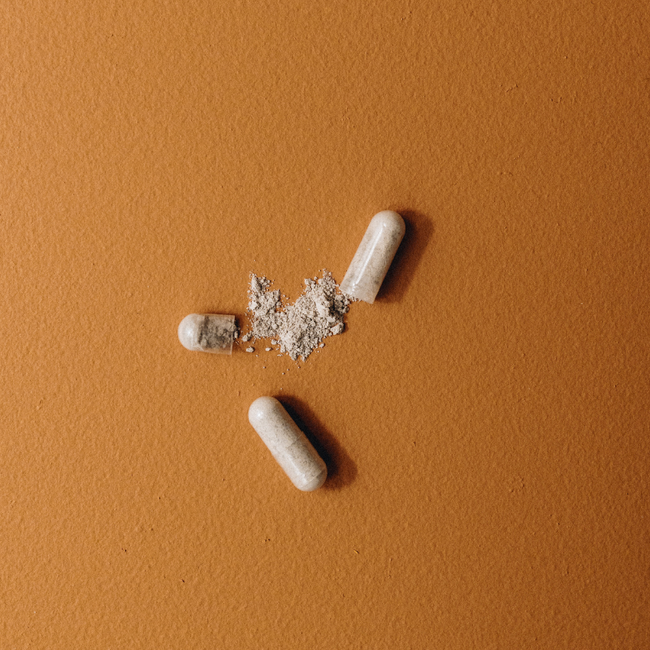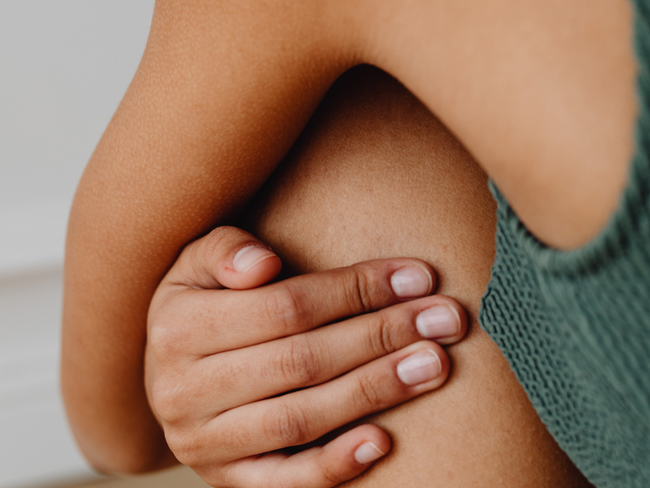L. crispatus:
[1] Grattepanche, Astrid Cécile Emma. “Gynecological probiotics in pharmacies”, nd
[2] Mändar, R., G. Sõerunurk, J. Štšepetova, I. Smidt, T. Rööp, S. Kõljalg, M. Saare, et al. “Impact of Lactobacillus Crispatus-Containing Oral and Vaginal Probiotics on Vaginal Health: A Randomized Double-Blind Placebo Controlled Clinical Trial,” April 14, 2023. https://doi.org/10.3920/BM2022.0091.
[3] Gudnadottir, Unnur, Justine W. Debelius, Juan Du, Luisa W. Hugerth, Hanna Danielsson, Ina Schuppe-Koistinen, Emma Fransson, and Nele Brusselaers. “The Vaginal Microbiome and the Risk of Preterm Birth: A Systematic Review and Network Meta-Analysis”.Scientific Reports12, no. 1 (May 13, 2022): 7926. https://doi.org/10.1038/s41598-022-12007-9.
L. rhamnosus:
[1] Slykerman, RF, F. Hood, K. Wickens, J.M.D. Thompson, C. Barthow, R. Murphy, J. Kang, et al. “Effect of Lactobacillus Rhamnosus HN001 in Pregnancy on Postpartum Symptoms of Depression and Anxiety: A Randomized Double-Blind Placebo-Controlled Trial.”EBioMedicine24 (October 2017): 159-65. https://doi.org/10.1016/j.ebiom.2017.09.013.
[2] Ho, Ming, Yin-Yi Chang, Wei-Chun Chang, Hung-Chih Lin, Mei-Hung Wang, Wu-Chou Lin, and Tsan-Hung Chiu. “OralLactobacillus rhamnosusGR-1 andLactobacillus reuteriRC-14 to reduce Group BStreptococcuscolonization in pregnant women: A randomized controlled trial.Taiwanese Journal of Obstetrics and Gynecology55, no. 4 (August 1, 2016): 515-18. https://doi.org/10.1016/j.tjog.2016.06.003.
B. longum subsp. infantis:
[1] Sabaté, Jean-Marc, and Franck Iglicki. “Effect of Bifidobacterium Longum 35624 on Disease Severity and Quality of Life in Patients with Irritable Bowel Syndrome”.World Journal of Gastroenterology28, no. 7 (February 21, 2022): 732. https://doi.org/10.3748/wjg.v28.i7.732.
[2] Solovyeva andal. “Long-term probiotic administration for irritable bowel syndrome: a legal need”.Therapeutic Archives95, no. 8 (October 11, 2023): 679-85. https://doi.org/10.26442/00403660.2023.08.202378.
Benefits:
[1] Singer, M., M. Borg, S. Ouburg, and SA Morré. “The relationship of the vaginal microbiota to early pregnancy development during in vitro fertilization treatment—A meta-analysis”.Journal of Gynecology Obstetrics and Human Reproduction48, no. 4 (April 1, 2019): 223-29. https://doi.org/10.1016/j.jogoh.2019.01.007.
[2] Haahr, T., JS Jensen, L. Thomsen, L. Duus, K. Rygaard, and P. Humaidan. “Abnormal vaginal microbiota may be associated with poor reproductive outcomes: a prospective study in IVF patients”.Human Reproduction31, no. 4 (April 1, 2016): 795-803. https://doi.org/10.1093/humrep/dew026.
[3] Moreno, Inmaculada, Francisco M. Codoñer, Felipe Vilella, Diana Valbuena, Juan F. Martinez-Blanch, Jorge Jimenez-Almazán, Roberto Alonso, et al. “Evidence That the Endometrial Microbiota Has an Effect on Implantation Success or Failure”.American Journal of Obstetrics and Gynecology215, no. 6 (December 2016): 684-703. https://doi.org/10.1016/j.ajog.2016.09.075.
[4] Souza, Sabrina Vieira de, Paula Bruno Monteiro, Gabriel Acacio de Moura, Nayara Oliveira Santos, Cristina Tonin Beneli Fontanezi, Isadora de Almeida Gomes, and Clara Andrade Teixeira. “Vaginal Microbioma and the Presence of Lactobacillus Spp. as Interferences in Female Fertility: A Review System.”JBRA Assisted Reproduction27, no. 3 (September 2023): 496. https://doi.org/10.5935/1518-0557.20230006.
[5] Gudnadottir, Unnur, Justine W. Debelius, Juan Du, Luisa W. Hugerth, Hanna Danielsson, Ina Schuppe-Koistinen, Emma Fransson, and Nele Brusselaers. “The Vaginal Microbiome and the Risk of Preterm Birth: A Systematic Review and Network Meta-Analysis”.Scientific Reports12, no. 1 (May 13, 2022): 7926. https://doi.org/10.1038/s41598-022-12007-9.
[6] Dominguez-Bello, Maria G., Elizabeth K. Costello, Monica Contreras, Magda Magris, Glida Hidalgo, Noah Fierer, and Rob Knight. “Delivery Mode Shapes the Acquisition and Structure of the Initial Microbiota across Multiple Body Habitats in Newborns”.Proceedings of the National Academy of Sciences107, no. 26 (June 29, 2010): 11971-75. https://doi.org/10.1073/pnas.1002601107.
[7] Slykerman, RF, F. Hood, K. Wickens, J.M.D. Thompson, C. Barthow, R. Murphy, J. Kang, et al. “Effect of Lactobacillus Rhamnosus HN001 in Pregnancy on Postpartum Symptoms of Depression and Anxiety: A Randomized Double-Blind Placebo-Controlled Trial.”EBioMedicine24 (October 2017): 159-65. https://doi.org/10.1016/j.ebiom.2017.09.013.
[8] Al Kassaa, Imad, and Maher Fuad. “Effects of Lacticaseibacillus Rhamnosus HN001 on Happiness and Mental Well-Being: Findings from a Randomized Controlled Trial”.Nutrients16, no. 17 (January 2024): 2936. https://doi.org/10.3390/nu16172936.
























